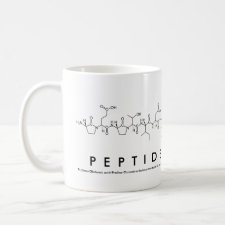
Authors: Bedwell TS, Anjum N, Ma YF, Czulak J, Poma A, Piletska E, Whitcombe MJ, Piletsky SA
Article Title: New protocol for optimisation of polymer composition for imprinting of peptides and proteins.
Publication date: 2019
Journal: RSC Advances
Volume: 9
Issue: (48)
Page numbers: 27849-27855.
DOI: 10.1039/C9RA05009D
Abstract: We present here a novel screening tool for optimisation of polymerisation mixtures used in imprinting of peptides and proteins. To facilitate rapid synthesis and screening of a combinatorial library of polymers the solid-phase synthesis method developed by Piletsky and co-workers was scaled down to 50 mg of template-immobilised solid phase, allowing a single well of a 96-well microplate to function as an individual reaction vessel. In this way, 32 different polymer compositions containing N-isopropylacrylamide, acrylic acid, N-(3-aminopropyl)methacrylamide hydrochloride, and N-tert-butylacrylamide, were tested in imprinting of three peptides and three proteins. Utilising filtration microplates has allowed the elution and washing steps to be performed in a similar manner to the large-scale synthesis, whilst incorporation of a fluorescent monomer (N-fluoresceinylacrylamide) made it possible to analyse the binding of synthesised polymer nanoparticles to the solid phase with immobilised templates under different washing conditions. The experiment has proven that the variations in monomer compositions had an effect on the yield and affinity of synthesised molecularly imprinted polymers for the peptides, but not for the proteins. Imprinting in this way presents an ideal method for performing small-scale syntheses for testing polymerisation mixtures, as information regarding the molecularly imprinted polymers affinity can be assessed as part of the elution process, without a need for time-consuming analysis such as quartz crystal microbalance or surface plasmon resonance
Template and target information: peptides, protein



Join the Society for Molecular Imprinting

New items RSS feed
Sign-up for e-mail updates:
Choose between receiving an occasional newsletter or more frequent e-mail alerts.
Click here to go to the sign-up page.
Is your name elemental or peptidic? Enter your name and find out by clicking either of the buttons below!
Other products you may like:
 MIPdatabase
MIPdatabase









